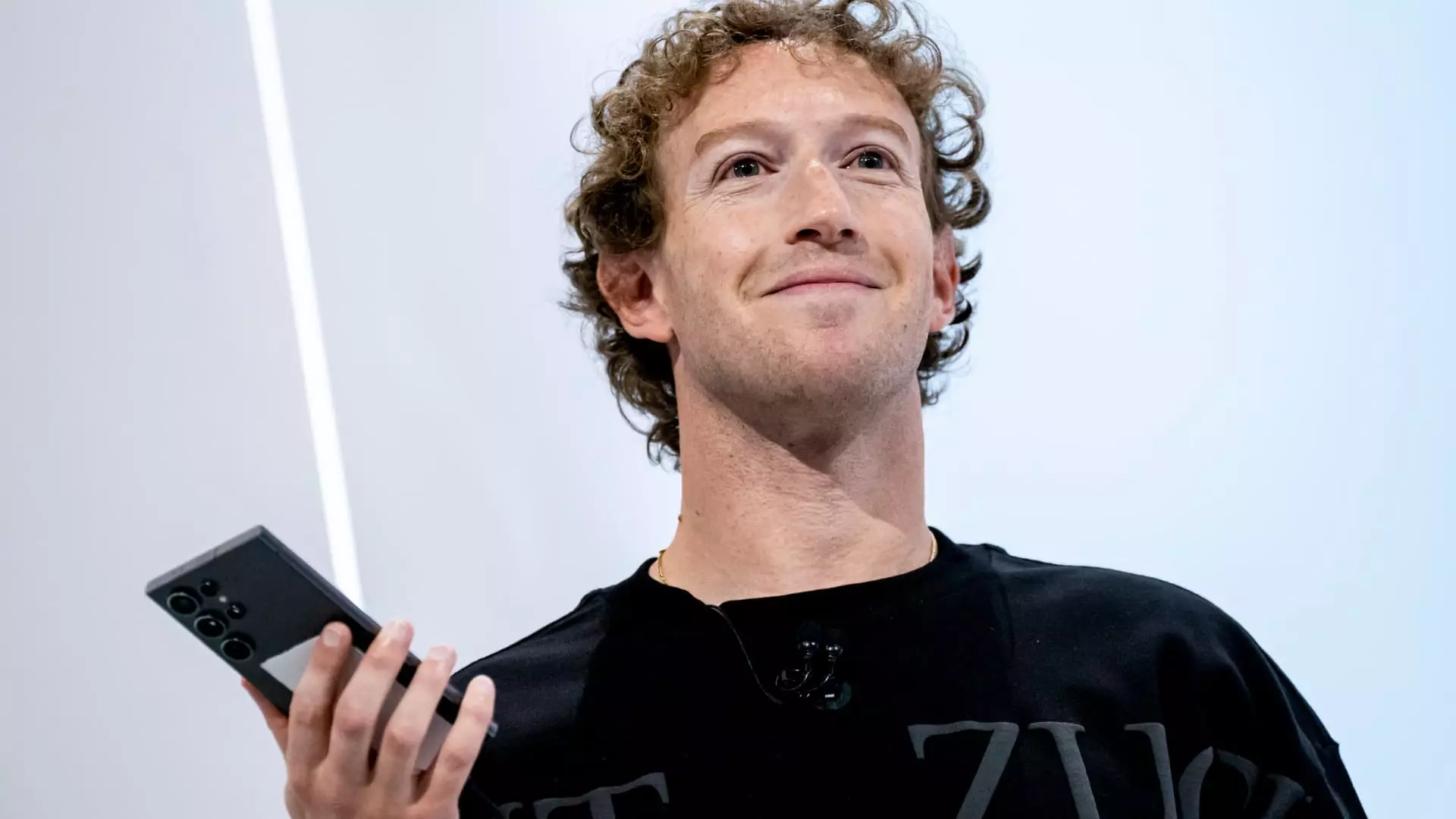In a recent episode of the “Joe Rogan Experience,” Meta’s CEO Mark Zuckerberg didn’t hold back as he critiqued Apple, a significant player in the tech industry. His remarks, laden with insights and implications, raise critical questions about the dynamics of innovation, market share, and user experience in the volatile tech landscape.
At the heart of Zuckerberg’s comments is the assertion that Apple has fallen short of its historical legacy of innovation since the iconic launch of the iPhone by Steve Jobs two decades ago. He praised the iPhone’s role in revolutionizing communication and technology accessibility, celebrating its impact on a global scale. However, he juxtaposed this praise with a clear discontentment regarding Apple’s current trajectory. According to Zuckerberg, Apple seems to be coasting on its previous successes rather than pushing the boundaries of technological advancement. This sentiment resonates with many consumers and tech enthusiasts who anticipate regular breakthroughs, fueling expectations for new features or revolutionary products with each new model release.
Zuckerberg’s critique suggests a stagnation in Apple’s innovation pipeline, encapsulated in his observation that new iterations of the iPhone offer only marginal improvements over their predecessors. With the smartphone market reaching saturation, he noted a trend in consumer behavior—users are delaying upgrades due to a lack of compelling new features. This can lead to a troubling question: has Apple lost its innovative edge or merely adapted to a more mature market? The reflection on Apple’s innovation invites a broader discussion on how companies should stay competitive in an era of fast-evolving technology.
In tackling the financial strategies underpinning Apple’s success, Zuckerberg elaborated on the company’s practices that he considers detrimental to the developer community and consumer choice. He highlighted Apple’s controversial 30% cut from developer revenues, which he interprets as a method of extracting maximum profit rather than fostering a healthy ecosystem of applications and services. This raises significant concerns regarding the ethics of platform control and the implications of such business models on innovation and competition.
Moreover, he pointed out Apple’s focus on ancillary products like AirPods as a symptom of a company scrambling to diversify its revenue streams amidst stagnant growth in core products. This diversification can be seen as a double-edged sword—while it demonstrates an ability to adapt, it also hints at an inability to embed deeper innovation within its flagship products. The results might alienate developers and consumers who feel constrained by Apple’s ecosystem, impacting overall user satisfaction and, consequently, Apple’s long-term profitability.
Zuckerberg also addressed the company’s justification for certain restrictive policies, citing user privacy and security. Apple has famously positioned itself as a guardian of consumer data, but Zuckerberg argues that the lack of universal standards and overly rigid protocols restrict other developers from creating products that could seamlessly integrate with Apple devices. His assertion that Apple’s proprietary systems are insecure due to failures in their design speaks to a broader issue of how tech giants balance security with openness in their ecosystems.
As consumer awareness and concern around privacy grow, potentially limiting Apple’s market influence, the question becomes whether their stringent policies are genuinely in the users’ best interest or whether they simply serve to maintain control over the market. By implying that changing these “random rules” could significantly enhance Meta’s business performance, Zuckerberg introduces the idea that competitive landscapes require fostering not just protection, but innovation through collaboration.
Lastly, Zuckerberg’s commentary on Apple’s Vision Pro headset illustrates a critical point about the iterative nature of product development in tech. While acknowledging that Apple’s first attempts at immersive technology may not have achieved the anticipated success, he reminds listeners that innovation often entails trial and error. However, his assessment signals a competitive tension between Apple’s and Meta’s ventures into emerging realities.
Zuckerberg’s critique reveals his belief that Meta is more aligned with the forward momentum of virtual and augmented reality, as evidenced by the established success of the Meta Quest headsets. The contrasting fortunes of the two companies in this emerging sector speak volumes about their respective visions for the future of technology and consumer engagement.
In summation, Zuckerberg’s insights prompt the tech community to reconsider the roles of innovation, competitive practices, and responsive design in the rapidly shifting technology landscape. As tech giants like Apple face mounting pressure to innovate, the stakes have never been higher, not just for their own survival, but for the evolution of the industry as a whole.

